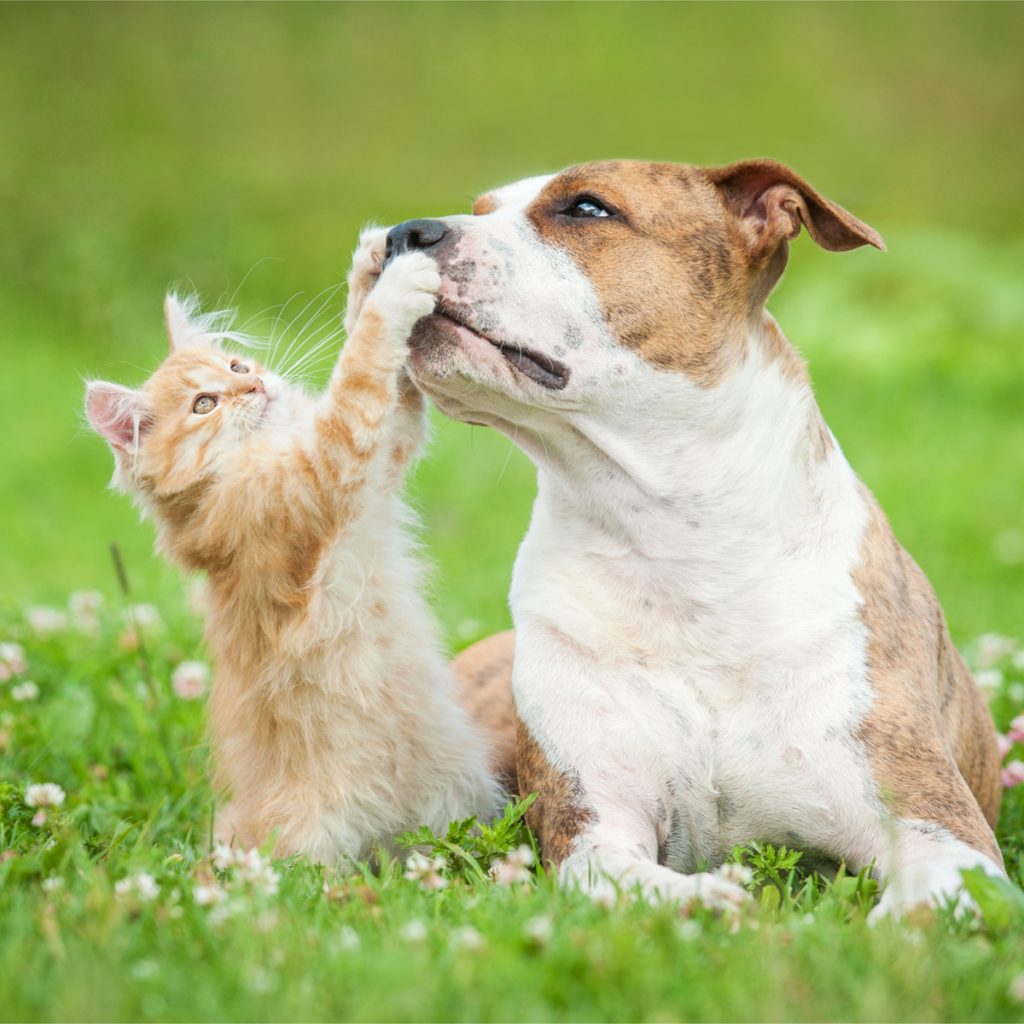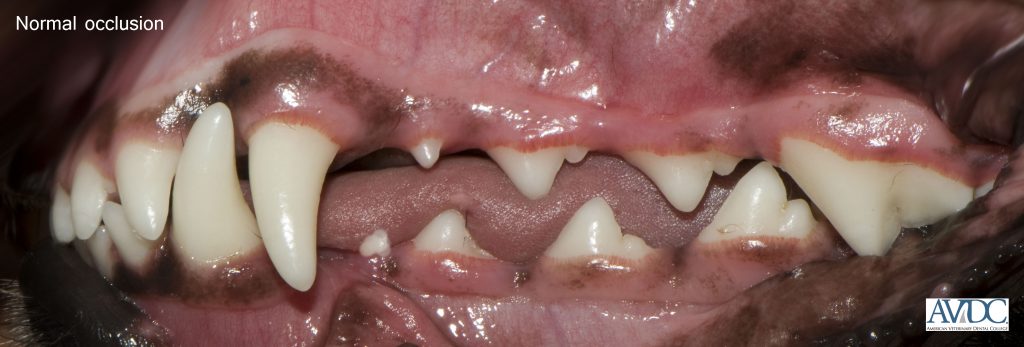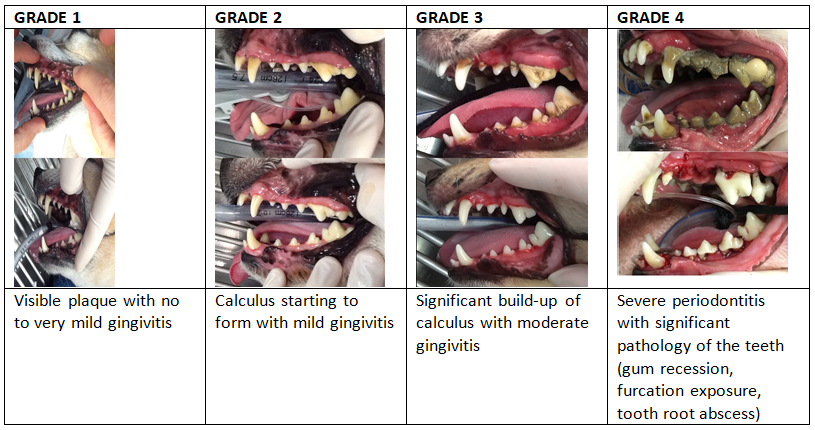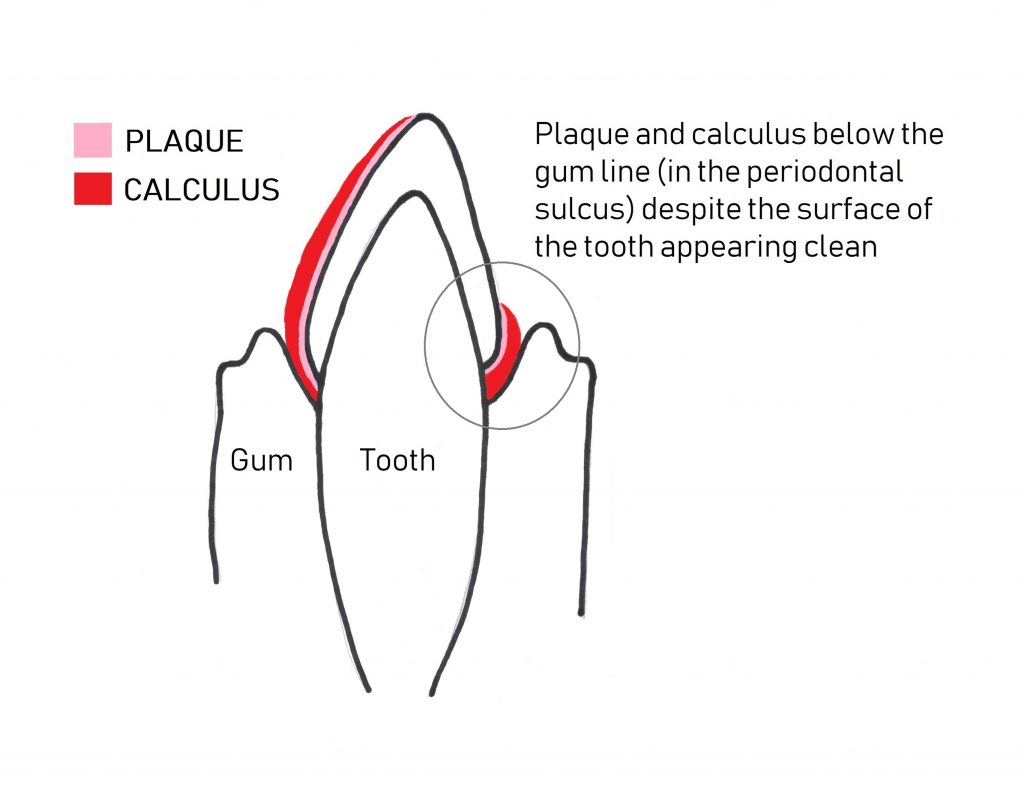 Dental disease in our pets often slips below the radar as the problems are not always easily noticed or seen. By the time our pet’s start to go off their food or develop a smelly breath, the disease is often quite advanced. With our Dental month fast approaching we thought it was an opportune time to recap some of the information useful to prevent dental disease in our pets.
Dental disease in our pets often slips below the radar as the problems are not always easily noticed or seen. By the time our pet’s start to go off their food or develop a smelly breath, the disease is often quite advanced. With our Dental month fast approaching we thought it was an opportune time to recap some of the information useful to prevent dental disease in our pets.
First the science bit ……. Dental disease or periodontal disease is inflammation or infection of the gums and supportive structures of the teeth. Dental disease is one of the most common diseases seen in small animal practice. This disease begins with deposition of plaque (or tartar) over the surface of the teeth. Plaque is a biofilm composed of bacteria within the mouth, saliva and sugars in the foods we eat. If caught early (within 1-3 days of deposition), this can be brushed off the teeth with a toothbrush. In the early stages of dental disease gingivitis is seen. Gingivitis is inflammation of the gums that occurs due to the layer of plaque over the surface of the teeth. If plaque is allowed to develop and remain undisturbed for 3 days it becomes mineralised from all of the minerals in saliva and calculus is formed. Unfortunately once calculus is formed it is impossible to brush off and accelerates deterioration of the gum and tooth. This leads to greater inflammation and infection of the structures surrounding the teeth including the connective tissue and bone, termed periodontitis.

How do I know if my pet has dental disease?
Signs of dental disease in your pet include red gums (gingivitis), bad breath (halitosis), yellow discolouration of the teeth (plaque) and calculus build-up on the teeth.
At each general health check and vaccination we will inspect your pet’s teeth closely for signs of dental disease. Up to 70% of dogs and cats over three years of age will have some level of dental disease. We will then grade the level of dental disease from zero (yay!) to four.


If your pet has grade 1 to 2 dental disease there is good news. This level of dental disease is generally reversible with a dental scale and polish. This procedure involves a general anaesthetic with an ultrasonic scale and polish of all teeth. Before and after photos are provided so you can admire your pet’s new pearly whites. In order to provide the best possible dental care for your pet we perform dental radiographs to assess the deep supportive structures of all teeth. Up to 40% of pets with visibly normal teeth may have underlying disease that can only be detected on dental radiographs.
Grade 3 and 4 dental disease is generally irreversible. This level of dental disease leads to infection of the gums, connective tissue and bone surrounding teeth to a point where these supportive structures can no longer hold the tooth in place. These dental grades are generally associated with extraction of teeth. The key to maintaining good dental health is to act early, while your pet has grades 1-2 dental disease.
 Why can’t we just clean our dog or cat’s teeth in the consulting room while the pet is awake? Whilst plaque and calculus deposition on the teeth can look ghastly, the real disease process is occurring below the gum line. Removing the plaque or calculus above the gum line does not solve the problem because the plaque is still present in the periodontal sulcus (small pockets of gum that overly each tooth), you just can’t see it anymore. The inflammation and infection may then spread to the tooth’s surrounding structures forming periodontitis. We also find that if the job is done crudely without the correct ultrasonic descaler, damage to the surface of the tooth accelerates further deterioration of the tooth and allows the bacterial film to attach more readily. It is for this reason that each tooth is carefully polished with a dental polisher machine following its cleaning.
Why can’t we just clean our dog or cat’s teeth in the consulting room while the pet is awake? Whilst plaque and calculus deposition on the teeth can look ghastly, the real disease process is occurring below the gum line. Removing the plaque or calculus above the gum line does not solve the problem because the plaque is still present in the periodontal sulcus (small pockets of gum that overly each tooth), you just can’t see it anymore. The inflammation and infection may then spread to the tooth’s surrounding structures forming periodontitis. We also find that if the job is done crudely without the correct ultrasonic descaler, damage to the surface of the tooth accelerates further deterioration of the tooth and allows the bacterial film to attach more readily. It is for this reason that each tooth is carefully polished with a dental polisher machine following its cleaning.
What are the consequences of dental disease in pets?
Apart from causing localised pain, inflammation and infection in the mouth, dental disease can have far reaching consequences for the rest of the body. These include heart disease and kidney disease. The high bacteria load in the mouth may enter the blood stream and lodge on the valves of the heart and within the kidneys.

What can I do to prevent dental disease in my pet?
The gold standard for dental care in pets, as in people, is toothbrushing. Daily brushing helps to mechanically disrupt the layer of plaque overlying the teeth. Special dog and cat toothpaste is available to brush your pet’s teeth. DO NOT use fluoride as this may be toxic if swallowed. If you would like some handy hints about starting toothbrushing in your pet ask our friendly staff for a handout or come in for a chat. While toothbrushing is a great option for maintaining your pet’s dental hygiene it may be an unachievable goal in this fast-paced world. Other options for dental care include dental diets such as Hills T/d and Royal Canin dental dry food. These diets either mechanically clean the teeth as the tooth moves through the biscuit or have additives that neutralise plaque. Dental treats such as Orovet chews and Greenies can also aid in reducing plaque build-up by encouraging chewing. Lastly, raw bones may help to clean teeth and provide environmental enrichment, however disadvantages of bones include potentially fractured teeth and obstruction, and perforation, of the gastrointestinal tract. Bones that are cut to expose the marrow may also contribute to the development of pancreatitis as they are very fatty. If you choose to give bones then choose a larger size bone that is not cut to reveal the marrow. If feeding raw chicken freeze for a minimum of 24 hours to kill bacteria such as Salmonella spp. And Campylobacter spp. That may cause vomiting or diarrhoea.
What do I do now?
Here at McDowall Vet Practice we strive to provide the best quality health care for your pet. It is for this reason that we have dedicated a whole month of the year to dental disease. AUGUST IS DENTAL MONTH. During the month of August we provide FREE dental health checks and discount dental procedures by 10%. Please call us on 3353 6999 to book now, spots are filling fast!
